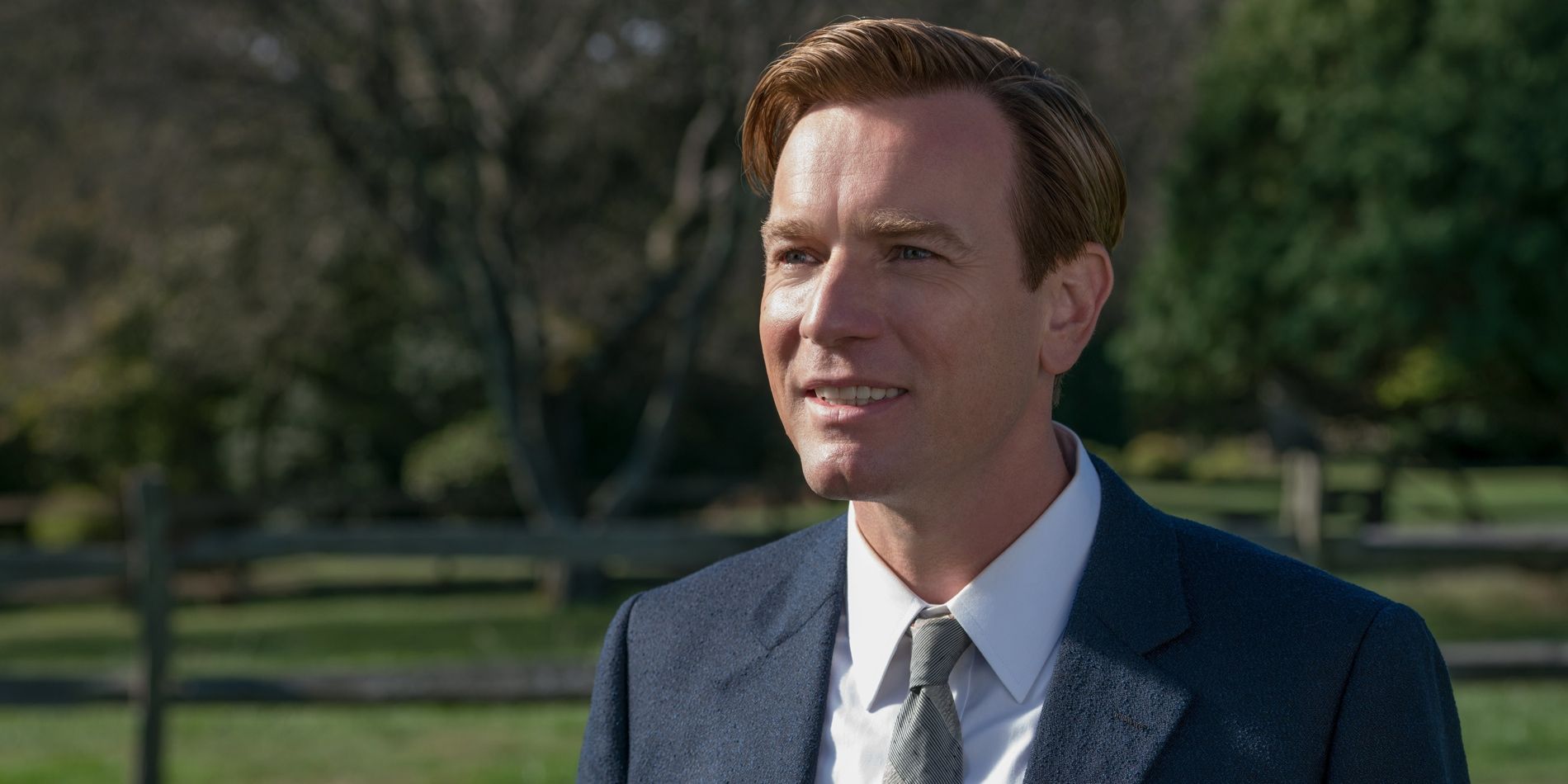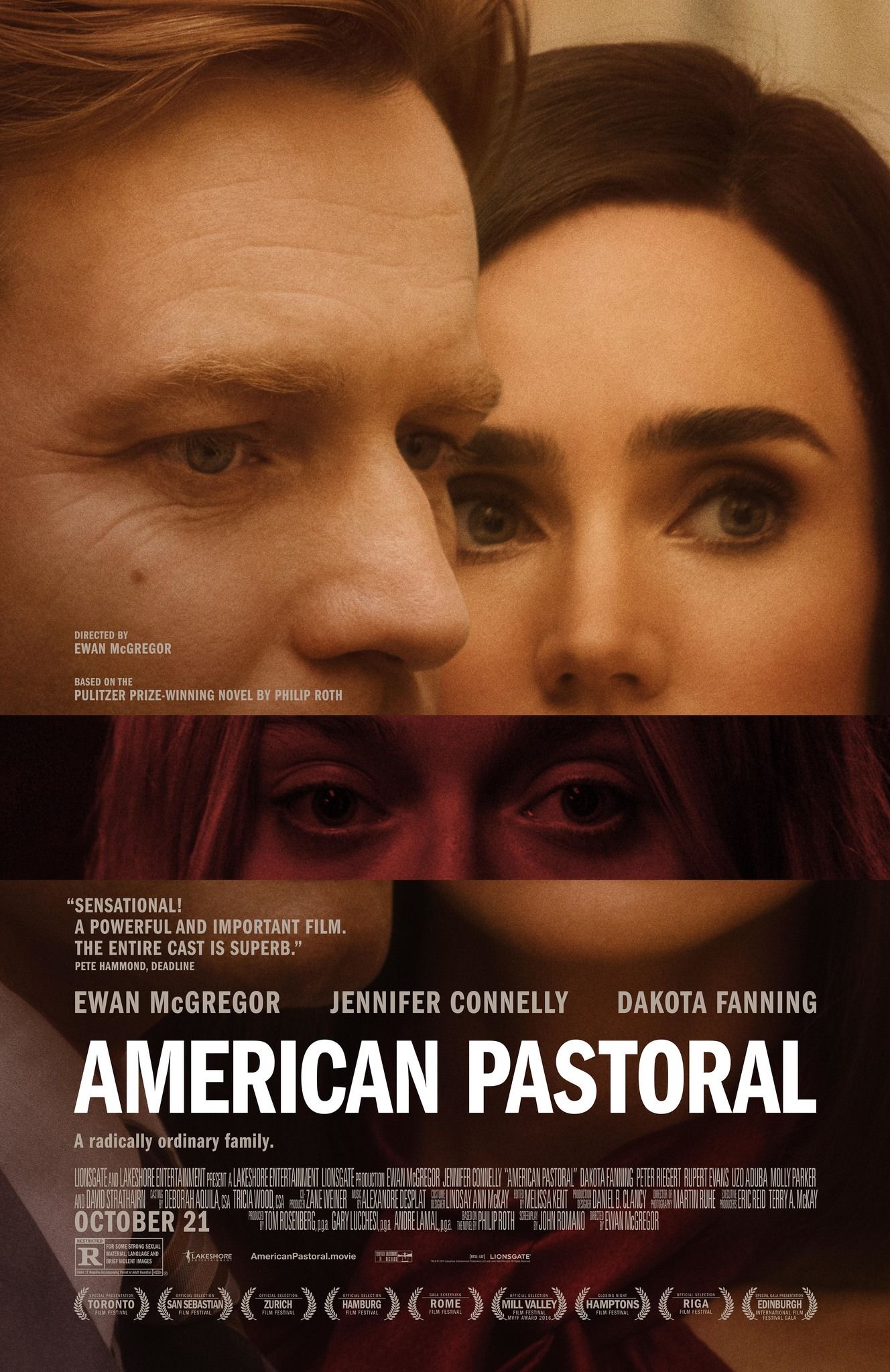Ewan McGregor makes his directorial debut with American Pastoral — an adaptation of the Pulitzer Prize winning novel by Philip Roth — which enters limited release October 21, 2016. He also stars as the central character, the Swede, a father who has to deal with the fallout of his daughter committing a terrorist act in protest of the Vietnam War.
Screen Rant spoke to McGregor about why this story was the right one to choose as his debut feature as a director, and how his own experiences as a father prepared him to take on the role of the Swede.
What made you chose this movie as your directorial debut? I know it’d been in development a while, but what was it that drew you to it?
Ewan McGregor: Well I was drawn to it as an actor first, I was attached to the film for three or four years as the actor to play Swede Levov, the father in the story. And then the film was never finding its feet, just never quite got going. It never got greenlit, we never had a start date. And then it became director-less for a while, and I realized that—having wanted to direct for twenty years or more, and never having felt I’ve found the right story, or the right time to tell the right story—I suddenly realized it was right under my nose.
So Swede’s always been a part of you in a way.
Ewan McGregor: For a long time, yeah, I was thinking about him. And when a film kind of drifts a bit like that, it’s very easy to just let it go. And often—and it’s happened to me in the past, when a film stutters and stops and stutters and stops, generally speaking after two or three starts and stop you just let it go. And this one I just didn’t ever want to do that, cause I wanted to play the Sewde, cause I loved this story so much. I think it’s the kind of cinema that I love to watch, it’s the cinema I love to be in, and it feels right, and now, as it did then, that this would be the first story that I told as a director.
This movie hit me harder than I thought it would, mainly because my father raised me, solely. And Swede’s character, you could see that fatherly love. I was a hellraiser growing up, so to have him deal with all that stuff was crazy. How did you approach Swede in that aspect, opposed to how you would’ve done it x amount of years ago?
Ewan McGregor: My experience as a father—I’ve got four girls, I’m the father to four daughters—and so I know very much that relationship. It’s really unique, there’s nothing else—I only have this relationship with these four human beings, you know? And my eldest, Clara, went to college, she’s in her third year at university, so I’ve been through her leaving home, you know? And that’s a small, ordinary loss, when you’re thinking about it coming up, and then one day she’s gone, and you wake up in the house and she’s not coming down to breakfast. It was really odd, it’s something you have to go through. There’s a letting go. These are the things that I could relate to in the story. The Swede’s daughter disappears into radicalism and becomes a terrorist, and he loses her in a way that is like a death but without a death. He doesn’t know where she is, and it stops his life, really. For the rest of his life he’s never the same. I don’t have any—thank God—experience of that, but I could relate to it in my own small way with my own girls. And I think as an audience that’s what we do with this, is we see this extreme story, but we pull from it what we can. I had a guy last night who was the father of one of the actors in the film have a very nice thought about it like that. He said that “it’s like all of our losses as parents isn’t it? All the little losses we have.” And I went, “yes, it’s whatever it means to you is right.”


